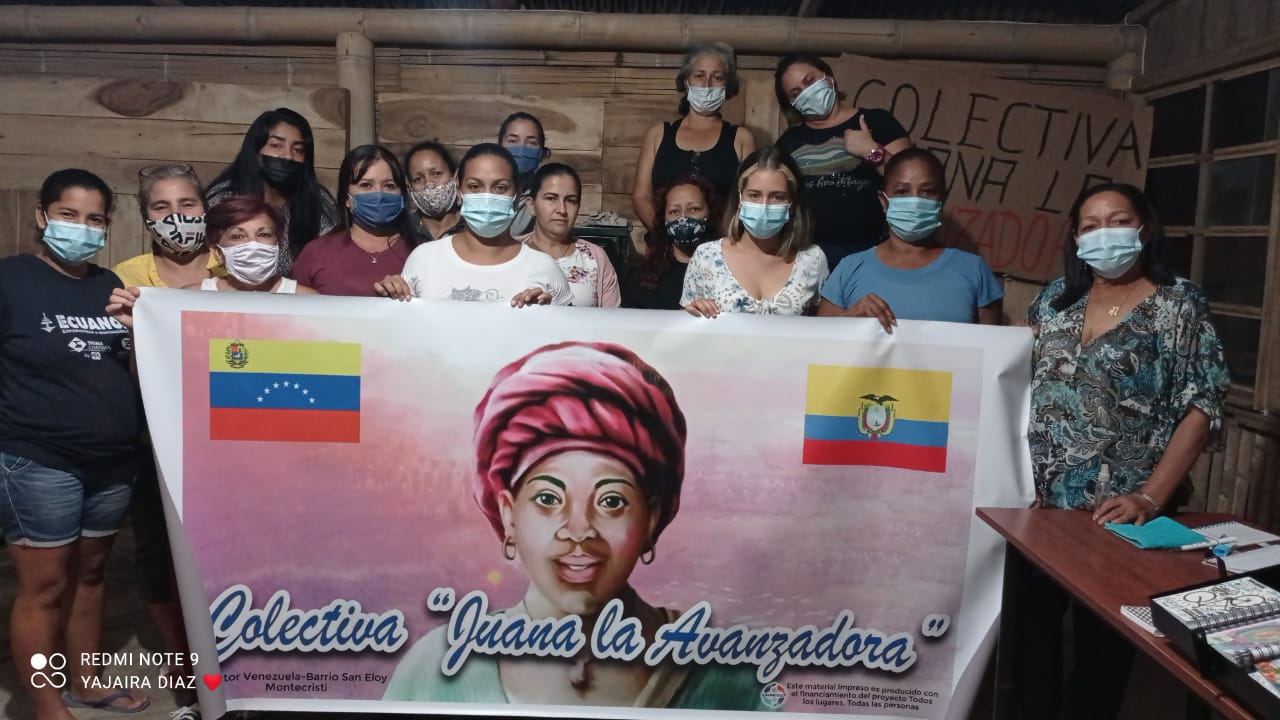
20 Sep ADVANCING WOMEN/ECUADOR
Because of the pandemic, new settlements sprang up in the neighbourhoods surrounding Ceibo Renacer, where the Province of Ecuador has an experimental presence in Manta.
Families have been gathering in these settlements who already knew each other in Venezuela and who were in contact with SJR and the Diocesan Caritas, who were looking after these families with humanitarian aid. From there, workshops were organized on integration and mutual understanding, through a women’s circle where they shared their experiences of leaving Venezuela and arriving in Ecuador, including all the dramatic moments and the conflict they had to endure.
In this process progress is being made and a collective group has been created called “JUANA LA AVANZADORA”, a very significant person in the battle for women’s rights in Venezuela. This has enabled them to feel strong and united, overcoming their difficulties and finding ways to cope and to gain a dignified life for themselves and for their families.
This collective is making progress with different activities and community entrepreneurship initiatives, such as the savings bank, maintained by donations from each member of the group and a social fund, for emergencies. It is opening up contacts with other organizations in order to promote different ventures.
A result of the concern that children should not lose their roots and their identity, the idea surfaced to write a play that would gather up their traditional customs, music, dances, and food, all very cherished aspects for them.
Today, Sunday, a cultural day was celebrated during which the play was presented together with their own national music, food and dances. A real family atmosphere was created, of cordiality and an experience of their identity which made them very happy and deeply moved, on touching their own roots and values again.
Another way in which this community works for Human Mobility is by taking on, once a week, the Diocesan Caritas’ dining room, where every day between one hundred and a one hundred and fifty Colombians and Venezuelans gather. As well as providing them food, it offers a space to listen to and encourage them. When they experience specific needs we refer them to other institutions that can help them with their problems.
Several Venezuelan children also participate in our school-based support programmes, as they do not have computing devices, or the possibility of connection to Internet, as in Ecuador, due to the pandemic, there are no face to face classes.
Teresa Legarreta, aci

